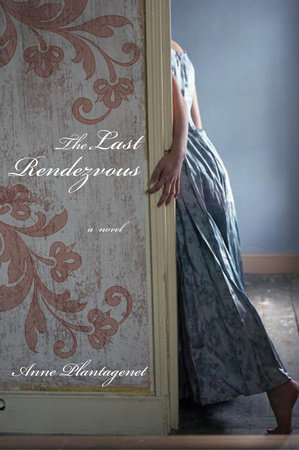The Last Rendezvous Reader’s Guide
By Anne Plantagenet


1. Were you aware of the celebrated French poet Marceline Desbordes-Valmore prior to reading The Last Rendezvous? Anne Plantagenet did a lot of research into Marceline’s life in order to write this fictional account. Why do you suppose the author chose to write The Last Rendezvous as a novel rather than as a biography? Discuss the freedoms allowed by the format she chose. Would you have been as drawn to this book had it been written as a biography? Why or why not?
2. Marceline often speaks of having been robbed of her childhood. What effect does this have on her thoughts and actions as an adult? How does this sense of lost time shape her as a wife and lover?
3. We learn that Henri’s name is actually Hyacinthe. Discuss the irony of him being named after a beautiful flower. Why do you suppose Henri allows a simple misunderstanding about the initial (“H”) he uses as his signature to go uncorrected, and chooses to go by an assumed name even with his most intimate relations? Marceline declares, “He goes masked.” In what ways is this so? What masks does Marceline wear?
4. From all outward appearances, Valmore is the ideal husband. He is attentive, patient, doting, attractive, honest, and provides the unconditional love and stability Marceline never knew in childhood. Discuss why Marceline cannot allow herself to be happy in her life with Valmore. Why does she crave the uncertainty and chaos that her affair with Henri brings? Have you ever found yourself in a situation where you got just what you always thought you wanted only to find that it was not as fulfilling as you had imagined? Have you ever eschewed peace in favor of havoc? Discuss any parallels you see between Marceline’s life and your life or the lives of those close to you.
5. Discuss Marceline’s approach to motherhood. She declares, “No woman is more a mother than I am. I live and breathe for my child.” In what ways does Marceline come across as a devoted mother? What signs do you see of the opposite? How would Marceline’s parenting style be received today?
6. When Marceline was a child, and home life started to unravel, her father continually reinvented himself in order to get by. Marceline tells us that, “accepting no responsibility for our misfortunes, he invented harebrained stories, spun outrageous nonsense.” What lessons does Marceline learn from her father’s coping mechanisms? How does Marceline’s father’s penchant for manufacturing “beautiful lies” eventually graft itself into Marceline’s personal and professional life?
7. We watch as Marceline’s mother leaves her husband and chases the dream of a new relationship. Rather than freeing herself, Catherine becomes emotionally dependent on Saintenoy, who fails to provide for her in any real way. What lessons does Marceline learn from this? In what ways is Marceline like her mother? Different from her? To what extent are we doomed to recreate the same mistakes we watched our parents make?
8. As a child, Marceline treasures her one-on-one time with her mother but desperately wishes that Catherine would confide in her and open up to her emotionally. How does Marceline carry this trait of trying to draw blood from a stone into adulthood and her other relationships? Discuss the similarities between Henri and Catherine. Is Marceline capable of feeling content? Why or why not?
9. Marceline’s mother-in-law is described as suspicious, jealous, and disapproving of Marceline. Her father-in-law is described as a companion who relies on her and appreciates her. In what ways do her in-laws represent Marceline’s conscience? Discuss how the two are outward symbols of Marceline’s inner turmoil.
10. Discuss the French Revolution as a backdrop in this novel. In what ways does the author use this as a tool to unfold the drama of her story? In what real ways do you think it played a part in shaping Marceline’s personal and professional life?
11. At turns we hear Marceline’s assessment of her own circumstances as having been “abducted,” “sacrificed,” and “in exile.” In what ways does Marceline surrender power over her own life to others? Does she ever fully take responsibility for her actions?
12. It seems that Marceline uses the two pillars of her professional career–theatre and poetry–for distinctly different purposes. Which does she use as a veil, and how? Which art form makes her feel most free, and why? Discuss the role of art in this novel and in your own life. What pleasure and purpose do you derive from the written word versus performance?
13. After reading Marceline’s poems, do you see her differently through her own words? Do have a deeper understanding of her life or her feelings? How do her poems speak to you, as opposed to the novel?
14. Marceline has been called “an early feminist.” In what ways is this true? By today’s standards would you consider her more of a feminist or a traditionalist? Discuss how her life and choices may have been different had she lived in modern times.
Just for joining you’ll get personalized recommendations on your dashboard daily and features only for members.
Find Out More Join Now Sign In